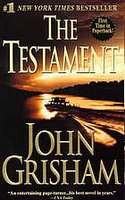So, an immediate application: In a December 5 article in the New York Times entitled “Loved His New Novel, And What a Bibliography,” Julie Bosman describes a new phenomenon in novel writing – adding bibliographies to novels. In The Castle in the Forest, author Norman Mailer includes an alphabetical list of 126 authors upon which he relied for writing his novel. Apparently there is some controversy in the novel world as to whether this is appropriate. After all, novels are neither known for their scholarly attributes nor read and relied upon as such. So why should the novel contain a bibliography?
Personally, especially for historical fiction, I think it’s a great idea. There have been a number of books which I have read (I’m thinking specifically of Bodie Thoene’s Zion Chronicles series) that made me particularly interested in a specific period of history, and I wondered – how much of the story is based on historical fact? If such novels contained bibliographies of works upon which they relied or which inspired the story, it would be much easier for one such as me to learn more about the actual events.

On the other hand, I wouldn’t expect a bibliography for a novel such as Grisham’s The Firm. At the same time, I can see one for his The Testament – especially regarding the Pantanal, the “ecological gem” at the heart of the story.
What do you think? Have you ever wished a novel had a bibliography?
1 comment:
I agree. I really like it when there is a note at the beginning or end of a book telling readers which parts were based on what and if there is a historical controversy, why the author chose to go the way he/she did.
Post a Comment